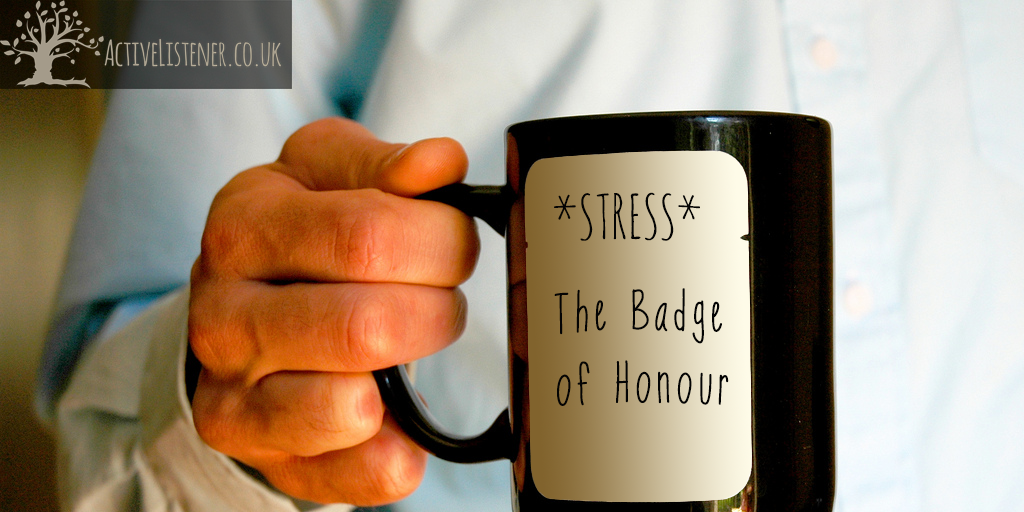This week is Mental Health Awareness Week and the theme this year has been about relationships and so I wanted to share my thoughts on the place of empathy especially in partnerships:
Relationships can be tough, and I mean that about all types of relationship; our parents, our children, our co-workers and so frequently our romantic relationships, whatever you wish to call them; spouse, partner, lover, soul-mate.
It is often said that when we start one of these new romantic partnerships we are just that; romantic. It is often cited as “the first stage” during which we are blind to each others flaws and we try to pretend that we are just what the other person wants; “of course! I *love* football!”, “shopping for clothes? my perfect afternoon!”.
You can read more about the five stages here, but in this article I’m interested in what happens when cracks begin to appear. In case you don’t know what I mean, and you are one of the lucky few to have always had a rock solid relationship, I mean when we feel misunderstood or struggle to understand the other; “I thought it was obvious I just needed a hug!”, “I find it weird that you still talk to your old boyfriend”, “How can you tolerate all this mess?”.
Far from being the old Mars/Venus argument of the 90’s, our differences in relationships can be a huge part in what can drive us apart. They can lead us down the path of what John Gottman, the man who can predict the outcome of 91% of relationships, calls the ‘four horsemen of the apocalypse‘; criticism, contempt, defensiveness and stonewalling. We don’t want that, well not if we want to stay together at least.
So how can we look at our differences in a way that helps our relationship?
Empathy can be a great leveller, a voice of reason and a healer.
o you remember when you were a child and you first touched something too hot and how shocked you were? Probably not that actual experience, but you know it must have happened because you somehow learned what it feels like. It’s likely
that your partner had a similar experience when they were young. Today, as adults in a relationship, you both know not to touch something scalding hot with your bare hand. Neither of you think that this is a strange way to behave. All good.
Now imagine that your partner had managed to miss out on this childhood experience, had never burned themselves and maybe today they pick up a hot pan from the stove with their bare hand. Without understanding the context from which this experience is missing, this might just seem like very odd behaviour.
Okay, so that is a crude analogy, but it helps to illustrate what might be going on in a relationship. Imagine after a time in a relationship your partner suddenly becomes afraid that you might leave them, that in fact, you don’t love him any more. This is clear to him because, as he sees it, you are always angry with him and nothing he does pleases you. This may come as a complete surprise to you, you may think “I don’t feel angry with him at all! Do I really have to say thank you over and over for every little thing and always say how wonderful it is? Now I *am* beginning to feel angry”. Potentially we are on the verge of a difficult discussion, an argument,hang on, rewind a minute, where might this be coming from?
When you were young perhaps you were gently praised for the things you did, no matter what it was. Perhaps you received love and hugs and smiles just for being you.
Well, what was his childhood actually like? He may say he was happy and fed and clothed, just like you, and that he had a perfectly normal life. And in that normal childhood perhaps when he presented his achievements to his parents there was always praise but with a twist; “That’s great that you got six A stars but what do you think happened with the B?”, or “That’s a lovely card, but you know the ‘three’ is the wrong way round don’t you?”. Or maybe even “What is your mother teaching you? You are 6 years old and you can’t even tie your shoe laces! Right, we are going to do it right now until you have learned it.”. This child could well grow up feeling not good enough.
Suddenly, by understanding the context from which someone’s fears come from, the picture changes. Now his fear makes sense and instead of the ensuing argument, perhaps you feel compassion. In reality, neither your nor his experience is ‘normal’ because ‘normal’ doesn’t exist.
It may sound like a cliché but perhaps communication is the answer, finding out how to step into their world and understand the whole person, their experiences, their context. You are both beautifully unique, both right and both worthy of love.












